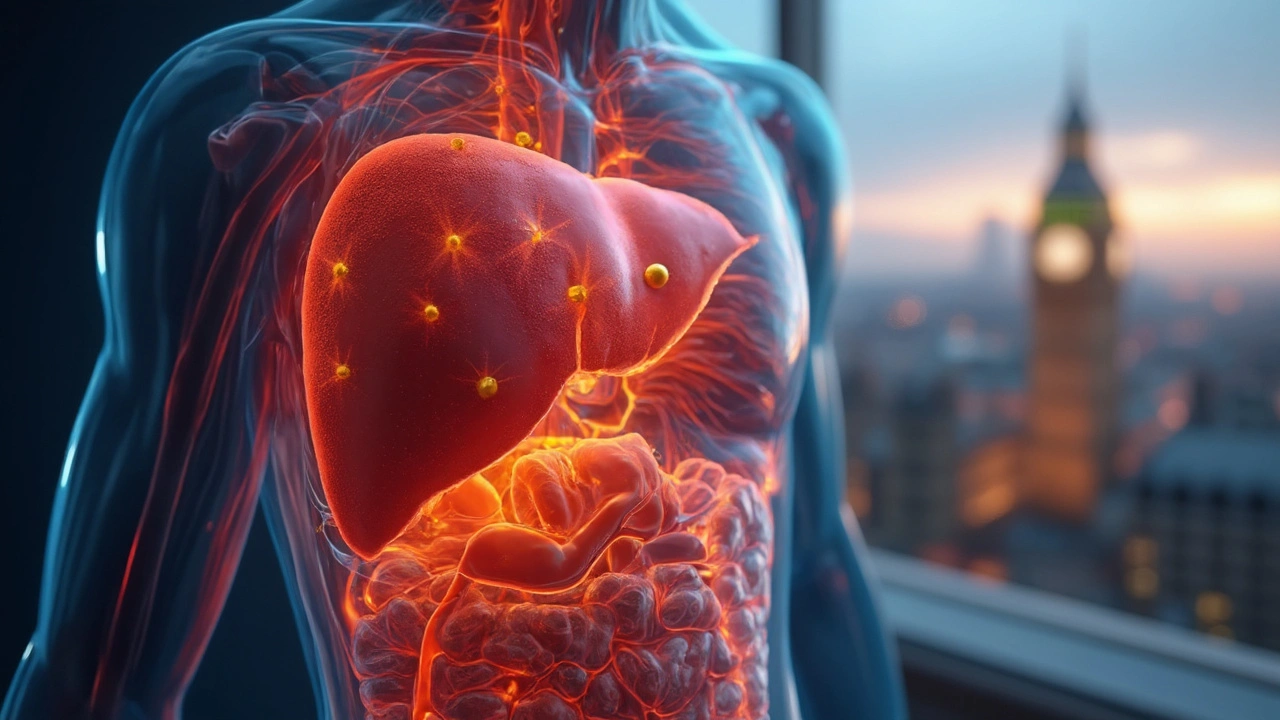Liver health: practical signs, tests, meds to watch, and simple habits that help
Think your liver is fine because you feel okay? The liver often keeps working until a problem is serious. Catching issues early makes them easier to treat. Here are clear, no-nonsense steps you can use today to protect your liver and spot trouble faster.
Common warning signs and quick checks
Watch for yellowing of the skin or eyes (jaundice), dark urine, very pale stools, ongoing stomach pain or swelling, persistent tiredness, and unexplained itching. Those matter. If you see any of them get checked within days, not months.
Blood tests that show liver stress include ALT, AST, GGT, alkaline phosphatase, and bilirubin. Ask your doctor for these if you have any warning signs, start a new medicine known to affect the liver, or have risk factors like obesity, heavy alcohol use, or diabetes.
Medications, supplements, and what to avoid
Some common drugs and supplements can damage the liver. Over-the-counter acetaminophen (paracetamol) in high doses is a leading cause. Certain acne drugs (isotretinoin), some antibiotics, and herbal products like kava or high-dose green tea extract have risks too. Always read labels and tell your doctor about every pill and supplement you take.
If you start a medicine known to affect the liver, ask for baseline liver tests and a follow-up plan. Never mix alcohol with liver-risk drugs. If your doctor prescribes a statin or other heart drug, don’t stop it without talking to them—many of these drugs are safe when monitored.
Fatty liver (nonalcoholic fatty liver disease) is very common and linked to weight, sugar spikes, and inactivity. Losing 5–10% of your body weight, cutting added sugar, and doing 30 minutes of moderate exercise most days can lower liver fat and improve test results in months.
Vaccines matter: get vaccinated for hepatitis A and B if you’re not immune. These infections can cause severe liver damage but are preventable with simple shots.
Safe alcohol limits vary, but cutting back clearly lowers your risk of liver damage. If you drink weekly above recommended limits or binge drink, talk to your doctor about support and screening.
Practical daily habits: favor whole foods, reduce processed carbs and sugar, choose lean protein, and include veggies, nuts, and fiber. Don’t assume a “natural” supplement is safe—many are not tested and may harm the liver.
If tests come back abnormal, ask your clinician what the specific numbers mean and whether imaging (ultrasound or FibroScan) or a specialist referral is needed. Small enzyme rises often respond to diet and stopping risky meds; big changes may need more evaluation.
Want to protect your liver? Eat cleaner, move more, check medication labels, get baseline liver tests if you have risk factors, and act fast on warning signs. Quick action today prevents bigger problems later.
LDL Cholesterol and Liver Health: Unpacking Their Critical Link
Explore how low-density lipoprotein (LDL) cholesterol interacts with your liver and why this relationship matters for your health. This article digs deep into what LDL actually does, how the liver manages cholesterol, and why unchecked LDL can start causing real trouble in your body. Discover surprising truths, learn practical tips, and see how simple changes can shield your liver while keeping your heart in check.
Keep Reading
